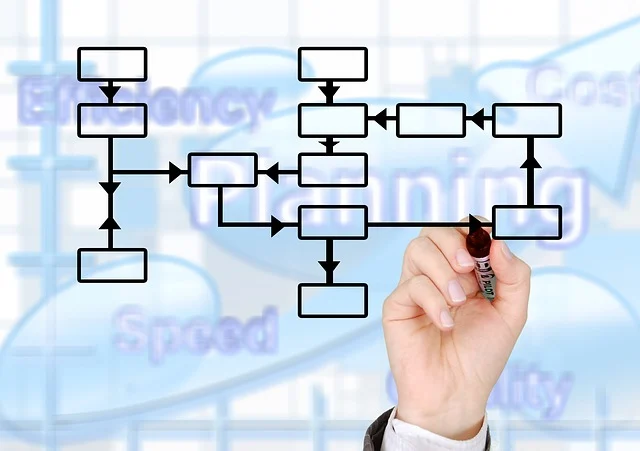For Indian small businesses navigating a competitive digital economy, a CRM (Customer Relationship Management) solution is not just a tool — it’s a strategic asset. From customer retention to sales tracking, the right CRM can drive meaningful growth. This guide explains everything small business owners in India need to know before selecting a CRM system in 2025.
Why CRM is Essential for Small Businesses
Small businesses thrive on strong customer relationships. A CRM system allows businesses to store customer data, track interactions, automate sales processes, and personalize communications. This means fewer lost leads, improved sales forecasting, and better service delivery.
Moreover, as consumer behavior shifts increasingly online, managing multichannel engagement is critical. A modern CRM centralizes communication from email, WhatsApp, social media, and calls — making customer service seamless.
Key Features to Look For in a CRM
Here are the top features that Indian small businesses should prioritize when buying a CRM:
1. Contact and Lead Management
A good CRM should organize all contacts, segment leads, and allow tagging based on customer journey stages. This helps in focused outreach and higher conversion rates.
2. Sales Pipeline Visualization
Visual sales pipelines enable teams to track lead progress in real-time. Drag-and-drop functionality helps sales reps update statuses and prioritize hot leads quickly.

3. Integration with Indian Tools
Many Indian businesses use platforms like Razorpay, WhatsApp, and Tally. Choose a CRM that offers native or API-based integration with these tools for smooth operations.
4. User-Friendly Interface
Ease of use matters. Your team shouldn’t need weeks of training. The CRM should have an intuitive UI and helpful onboarding tutorials to help teams go live fast.
5. Custom Reports & Analytics
Insights drive better decisions. Look for a CRM that offers dashboards and report customization so you can monitor KPIs such as customer acquisition cost (CAC), sales cycle length, and deal conversion rate.
6. Mobile Access
Sales teams in India often work on the move. A CRM must be mobile-optimized or have a dedicated app for Android and iOS with offline functionality.
Best CRM Pricing Models for Small Indian Businesses
Pricing is always a critical concern for small business owners. Here are common pricing models:
- Freemium: Basic features free, upgrades paid (e.g., Zoho CRM, HubSpot).
- Per User/Per Month: Best for growing teams.
- Flat Fee Models: Fixed cost for unlimited users, suitable for startups.
Always compare the cost-to-feature ratio. An expensive CRM with too many unused features may not justify ROI for a small firm.
Top CRMs Popular in India for 2025
Here are CRMs well-suited for Indian small businesses:
- Zoho CRM: Highly customizable, based in India, local support.
- Freshsales (by Freshworks): Strong AI tools and integration with Freshchat.
- HubSpot CRM: Great for inbound marketing, free tier available.
- Salesforce Starter: Simplified version of Salesforce for smaller teams.
Each has unique strengths. Businesses should trial a few to determine the best fit.

Mistakes to Avoid When Choosing a CRM
- Rushing into the decision without defining business goals.
- Ignoring team input or user-friendliness.
- Overlooking the importance of customer support and onboarding.
- Not testing scalability — choose a CRM that grows with your business.
How to Implement a CRM Successfully
Once you select a CRM, focus on implementation:
- Train your team: Assign roles and ensure all members understand the CRM functions.
- Import existing data: Clean old data before migrating it into the CRM.
- Automate routine tasks: Set up email workflows, lead scoring, and reminders.
- Measure ROI: Review sales improvement, lead conversion, and customer satisfaction after three to six months.
Conclusion
Selecting the right CRM software is no longer optional — it is a strategic decision that can significantly impact the future of any small business in India. As customer expectations grow and competition intensifies, businesses that adopt CRM systems early gain a clear edge in managing relationships, tracking performance, and scaling operations efficiently.
The best CRM for your business is not necessarily the one with the most features, but the one that fits your goals, aligns with your team’s capabilities, and supports your customer journey. Whether you’re a retail store managing walk-in customers, a service provider handling appointments, or an e-commerce business tracking online leads, a CRM system can bring much-needed clarity, automation, and structure.
It is also essential to consider long-term factors like vendor support, mobile access, data privacy, and future scalability. Invest time in trial versions, involve your sales and customer service teams in the decision-making process, and don’t hesitate to switch if the current tool fails to deliver measurable improvements.
Ultimately, a good CRM empowers your small business to build meaningful connections with customers, improve response times, automate repetitive tasks, and increase revenue — all while saving time. It enhances your brand’s professionalism and sets the foundation for consistent growth.
In 2025 and beyond, businesses that leverage CRM tools smartly will be far better equipped to navigate market challenges, personalize interactions, and build long-lasting customer loyalty.
